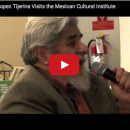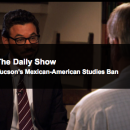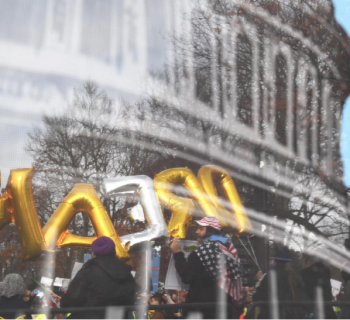Wednesday, March 28, 2012
Latino Education & Advocacy Days Summit
4:20 PM: Legacy Address - "Reies Lopez Tijerina: Face of a Movement and Spirit of a Cause" (confirmed)
Register now and secure your seat for a very rare appearance to hear Reies Lopez Tijerina, Founder, La Alianza Federal de Mercedes, and Civil Rights/Land Grant Activist.
Watch short YouTube video here: http://www.youtube.com/watch?v=y-X0vVaG_PA
Reies Lopez Tijerina was born on a mound of cotton sacks on Sept. 21, 1926, near Falls City, Texas, to a family of migrant workers. In his early life he served briefly as a minister with the Assemblies of God before founding a utopian community in Pinal County, AZ, in the early 1950s. He had risen from general obscurity as a roaming country preacher in the Southwest to international fame as one of the most daring revolutionary figures in United States history.
Tijerina created the Valley of Peace religious center in Southern Arizona in 1956. At about this time Tijerina learned of many families in the state of New Mexico who had been dispossessed of their ancestral lands. Tijerina had a mystic vision which he interpreted as a calling to move to New Mexico to help the Hispanos there reclaim legal jurisdiction over ancient land grants.
He took up the cause of land-grant restoration in the 1960s and is best known as one of the earliest pioneers, and among the most influential social activists of the Mexican-American or Chicano Civil Rights Movement (although he best prefers the term Indo-Hispano). He is routinely identified as one of the "four horsemen" of the early social movements, along with Cesar Chavez, the farm labor organizer in California; Colorado Chicano activist Rodolfo "Corky" Gonzales; and La Raza Unida Party co-founder Jose Angel Gutierrez in Texas.
Reies Lopez Tijerina founded the Alianza Federal de Pueblos Libres (Federal Alliance of Land Grants) in New Mexico to reclaim Spanish and Mexican land grants held by Mexicans and Native Americans before the U.S.-Mexican War (nearly 100 million-acres). The Treaty of Guadalupe Hidalgo, signed after the U.S. victory over Mexico, guaranteed Mexican citizens the retention of their land grants. The Alianza hoped to reclaim ownership of land through the courts of New Mexico; however, it was determined in a court ruling that the United States Congress was the arbitrator on issues of land rights based on international treaties.
Tijerina became famous when on June 5, 1967 he led an armed raid on the Rio Arriba County Courthouse in Tierra Amarilla, NM. This event brought the issue of land rights to national attention and became a stimulus for the Chicano movement. The raid climaxed in a 90-minute shoot-out at the court house of Tierra Amarilla when Alianzistas tried to make a citizen's arrest of certain New Mexican officials. The incident turned New Mexico into a battleground and put Tijerina on the front pages of the world's newspapers.
In 1968, Tijerina unsuccessfully ran for governor of New Mexico with The People's Constitutional Party. He also collaborated closely with the Rev. Martin Luther King Jr. on the Poor People's Campaign. Although Tijerina was found not guilty of the charges related to the courthouse raid, he eventually was convicted of charges stemming from the occupation of the amphitheater. He was jailed repeatedly and between June of 1969 and July of 1971 was held at in a federal penitentiary which led to the eventual dissolution of the Alianza, given the conditions of parole which included he could not speak about or lead any organization that addressed land grant issues.
They Called Me "King Tiger": My Struggle for the Land and Our Rights is Reies Lopez Tijerina's autobiography. In it, he archived his actions during the uprooting of the 1960s Mexican-American Civil Rights Movement. He was the only one of the group to keep a record of his work to explain what brought him and his Federal Land Grant Alliance members to break the law. Challenging the New Mexico and national authorities, reclaiming part of a national forest reserve, and invading and taking over a courthouse won him the admiration of many young activists then and now.
Reies Lopez Tijerina currently lives in El Paso, TX with his wife Esperanza where they continue to speak out on indigenous land issues. He has received numerous awards, most recently the Mexican government's "Ohtli" award in 2009 for his lifetime commitment to human and civil rights, and his enduring work and sacrifice to protect and improve the lives of generations of persons of Mexican descent living in the United States. In 2011, the city of Las Vegas, N.M., also presented him a key to the city.
Thank you - Gracias, EM
---------------------------------------------------

Enrique G. Murillo, Jr., Ph.D.
Executive Director - LEAD Organization

5500 University Parkway / Room CE-305
San Bernardino, CA 92407
emurillo@csusb.edu
Tel: 909-537-5632
Fax: 909-537-7040
-- Join or learn more about LEAD activities, events or programs on any of our social networks, partnerships or education projects --
LEAD - Latino Education Projects
----------------------------------------------------------------------------------------------------
March 14, 2012
1960S SOCIAL RIGHTS AND LAND GRANT ACTIVIST TO SPEAK AT CSUSB LEAD CONFERENCE
SAN BERNARDINO, Calif. - Reies Lopez Tijerina, an influential leader of the Mexican-American Movement in the 1960s, will speak at the third annual Latino Education Advocacy Days summit at Cal State San Bernardino on Wednesday, March 28.
Tijerina, now 85, took up the cause in the 1960s to reclaim nearly 100 million acres in Spanish and Mexican land grants held by Mexicans and Native Americans before the U.S.-Mexican War. He will conclude the all-day LEAD summit, which will focus on education issues affecting Latinos at the national, regional and local levels.
The free conference is hosted by the CSUSB College of Education and will be held at the university's Santos Manuel Student Union from 8:30 a.m. to 5:30 p.m. Online registration is now open at the LEAD website athttp://lead.csusb.edu.
The conference will also feature U.S. Assistant Secretary of Education Eduardo Ochoa, who will deliver the morning keynote address, as well as a full schedule of speakers and presentations. Ochoa serves as the secretary of education's chief adviser on higher-education issues and administers more than 60 programs, totaling nearly $3 billion annually, which are designed to provide financial assistance to eligible students enrolled in postsecondary institutions.
Tijerina became one of the earliest pioneers and among the most influential social activists in California, along with United Farm Workers union leader Cesar Chavez, joining Colorado Chicano activist Rodolfo "Corky" Gonzales and Jose Angel Gutierrez co-founder of La Raza Unida Party in Texas. The movement is known as the Mexican-American or Chicano Civil Rights Movement (although Tijerina best prefers the term Indo-Hispano).
"There is so much that he can share of the social rights movement and his experiences that will give our young people a perspective of where we were in the 1960s, how we have progressed and what we still have to accomplish," said Enrique Murillo, the executive director and founder of the LEAD project, and a professor of education at Cal State San Bernardino.
Tijerina was born near Falls City, Texas, to a family of migrant workers. In his early life he served briefly as a minister with the Assemblies of God Church before founding a utopian community in Pinal County, Ariz., in the early 1950s.
At about this time he learned that many families in New Mexico had been dispossesed of their ancestral lands. Tijerina had a "mystic vision" that he interpreted as a calling to move to New Mexico to help the families there reclaim legal jurisdiction to nearly 100 million acres in Spanish and Mexican land grants held by Mexicans and Native Americans before the U.S.-Mexican War. The Treaty of Guadalupe Hidalgo, signed after the United States victory over Mexico, guaranteed Mexican citizens retention of their land grants.
He founded the Alianza Federal de Pueblos (Federal Alliance of Land Grants) in New Mexico to reclaim the land through the courts of New Mexico; however, it was determined in a court ruling that the United States Congress was the arbitrator on issues of land rights based on international treaties.
Tijerina received national attention on June 5, 1967, when he led an armed raid on the Rio Arriba County Courthouse in Tierra Amarilla, N.M.
The raid climaxed in a 90-minute shoot-out at the court house when members of the alliance tried to make a citizen's arrest of a government official. The incident turned New Mexico into a battleground, put Tijerina on the front pages of the world's newspapers and brought the issue of land rights to national attention and became a stimulus for the Chicano movement.
The LEAD 2012 summit will be webcast live, courtesy of LatinoGraduate.net <http://LatinoGraduate.net> , to more than 1,500 viewing sites in the United States and in 28 countries, including Mexico, Argentina, Belize, Brazil, Chile, Colombia, Costa Rica, Cuba, El Salvador, England, Guatemala, Iceland, Jamaica, Nicaragua, Panama, Spain and South Korea.
Some of the universities that will host town hall viewing sites include George Washington University; University of California, Santa Cruz; Brown University; Pennsylvania State University; Mira Costa Community College (Oceanside, Calif.); Washington State University; Arizona State University; the University of Texas at Austin; as well as numerous international universities.
To date, the event has attracted more than 150 sponsors and partners, including the National Education Association-Hispanic Caucus, Congressional Hispanic Leadership Institute, California Association for Bilingual Education, Hispanic Association of Colleges and Universities and the National Institute for Latino Policy, Southern California Edison. California Teachers Association, the U.S. Department of Agriculture Hispanic Serving Institutions National Program, Puente Project - University of California Office of the President, and DEXTRO LLC LaPlaza.net.
For more information on the Latino Education Advocacy Days project, visit the LEAD website athttp://lead.csusb.edu or contact Enrique Murillo Jr. at (909) 537-5632.









